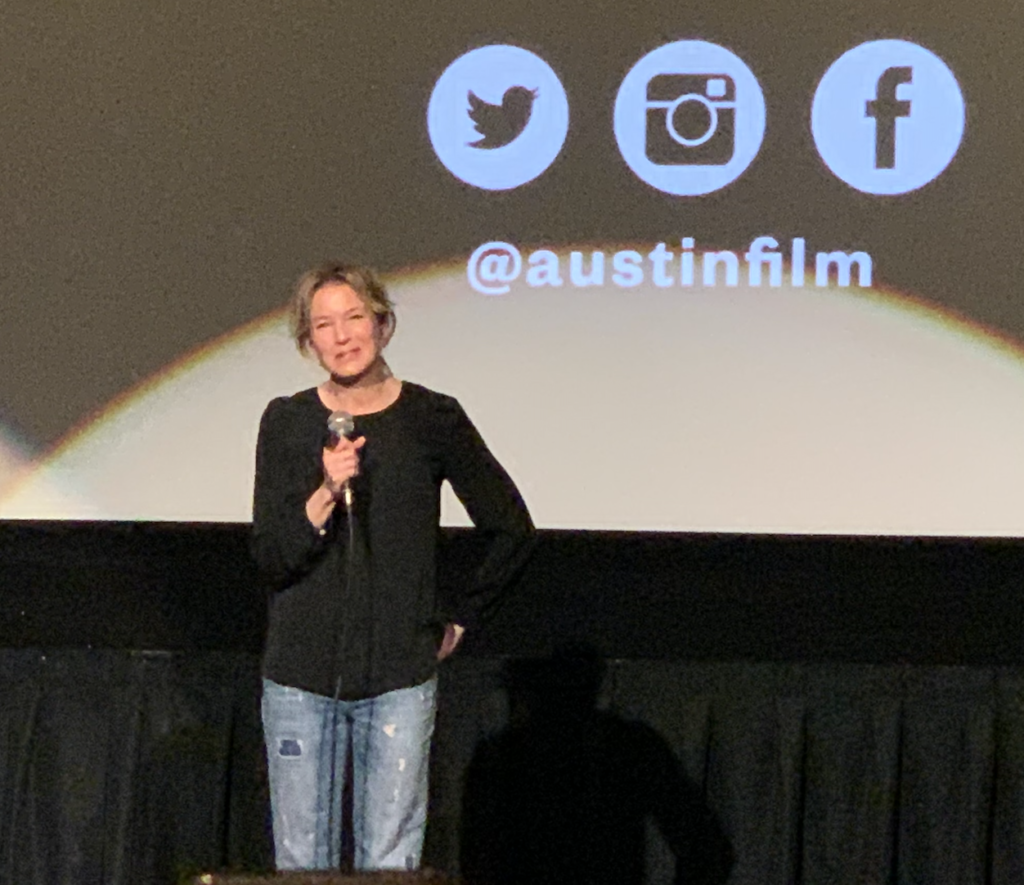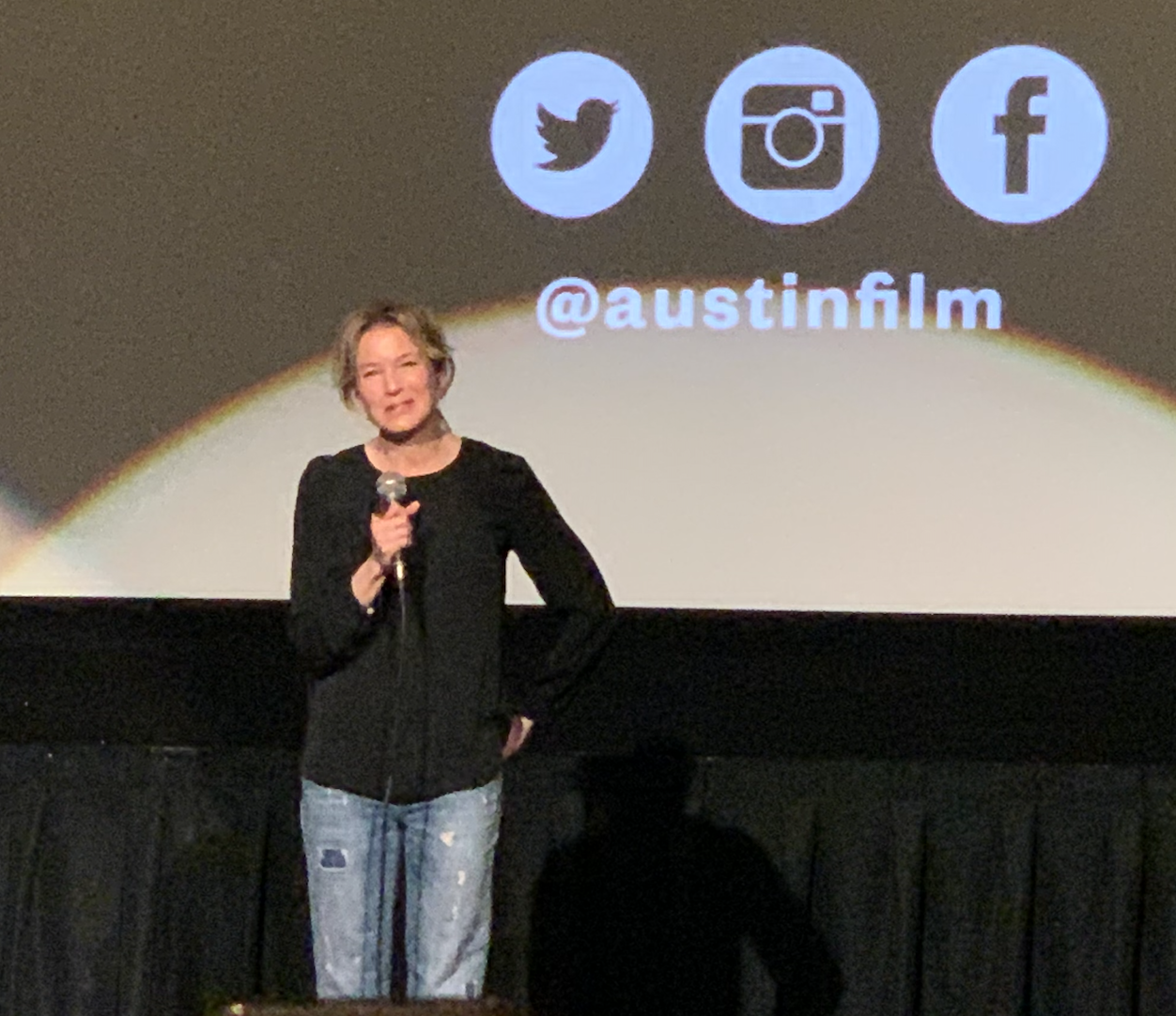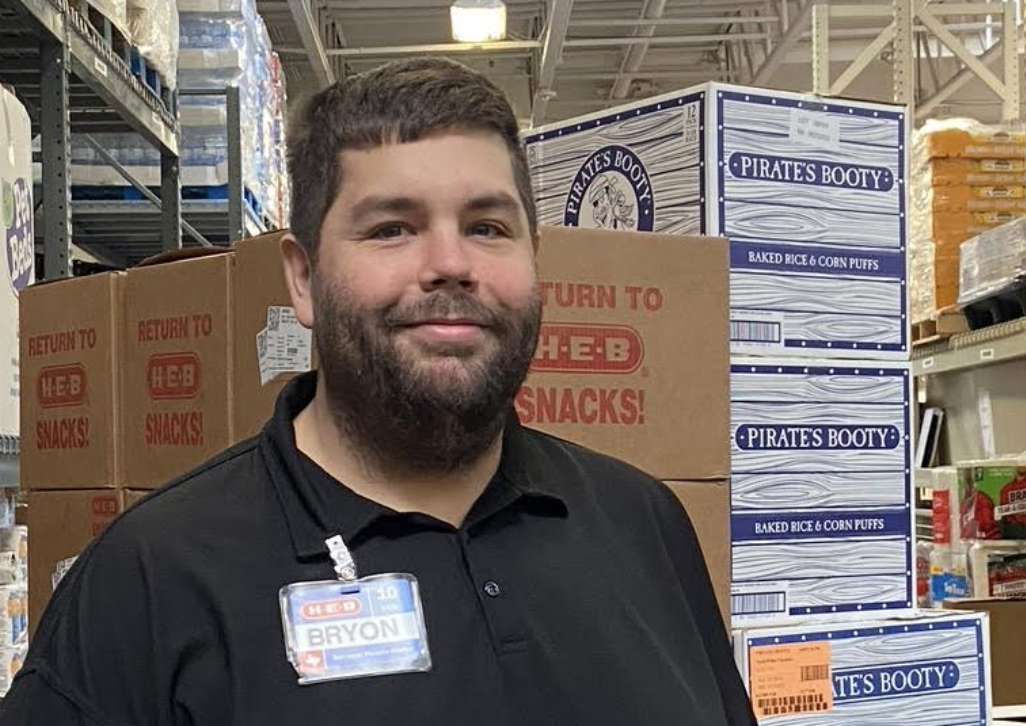(By JAVIER GONZALEZ)
“I don’t know where to begin, Renée. Holy….”
These words, spoken by acclaimed Texan filmmaker and founder of the Austin Film Society Richard Linklater, echoed the audience’s sentiments exactly, and were the perfect way to kick off an hour-long conversation Dec. 3 with Academy Award-winning actress Renée Zellweger.
The patrons inside both of AFS Cinema’s packed theaters had just finished experiencing Zellweger’s transformative portrayal of pop culture legend Judy Garland in the new film “Judy,” which depicts a semi-fictionalized version of the star’s final years.
While reactions toward the film itself have been mixed, Zellweger’s performance is undeniably powerful and has been universally hailed as one of the best of the year.

(ACC Star photo by Javier Gonzalez)
The tragedy surrounding the end of actor Judy Garland’s life and career is something of a legend in and of itself. The icon’s battle with addiction is well documented, having been introduced to amphetamines early in her childhood.
That kind of deep-seeded trauma can be difficult to tap into, and Linklater was as curious as the audience was regarding what Zellweger related to in the character.
“I don’t have kids, but leaving my dogs is really hard. And I’m not addicted to pills,” she laughed. “Today. But I’m still young I can get there.
“I know a schedule,” she went on, “I understand the fatigue. I know what that can do to a body and a mind and your emotional disposition. But I don’t know the life of a live performer.”
It is that lifestyle in particular, as the movie highlights, that made Garland so reliant on the amphetamines that were forced upon her as a child: pills to keep her dancing for 20 hours a day, pills to put her to sleep, pills to suppress her appetite.
Learning about the extent of Garland’s addiction was a big part of Zellweger’s preparation for the role, but she didn’t see it as research in the traditional sense.
“It didn’t feel like looking at a role and then dissecting it in the way that you do and then you workshop it. It didn’t feel like that. It felt like a very greedy, selfishly-motivated exploration.
“I knew nothing about what she was grappling with, so to learn about that and to want to know how it came to be was a driving force.”
But what Zellweger knows very well is the struggle that comes with balancing a normal life when most of your time is spent in the public eye.
“I understand that gulf between the public persona and the truth of a life. And it felt that there was more to this story than has been properly explored in what has been written about her in that sort of blanket idea of tragedy over this chapter of her life. I wanted to understand it.”
For her, and for everyone involved in the production of the film, the search for understanding created a deep love for the star. And that love fueled their passion for the movie.
“We all wanted to do our best for her because we loved her. And we’re all just in awe of the importance of what she left behind.”
Zellweger’s love for Garland ran so deep, she hasn’t felt the need to shed the character. In fact, she still finds herself going on Judy Garland deep dives.
“How do you decompress? What’s it like when they say: ‘That’s a picture wrap.’ What do you do next?” Linklater asked.
“You go home and play her records. I don’t think I have [decompressed]. And I don’t think I want to,” Zellweger said. “I carry a smile for her, you know? I’m still reading. [My friend] Neil sends me photos every day because I’m not on social media. He’s on this ‘Judy’ fan site and they have photos and everything that happened on this day in Judy Garland’s life. I love it. I don’t want to decompress.”
It is not difficult to understand why Zellweger wishes to keep a piece of Garland inside of her heart, either. For all the hardships Garland herself went through, the bright light that radiated from her is undeniable.
“There’s so little that, as a society, we celebrate together. But we can agree on her. The conversations that we have when we all sit in a room like this, it’s just this shared adoration and recognition of her importance. I love that.”




